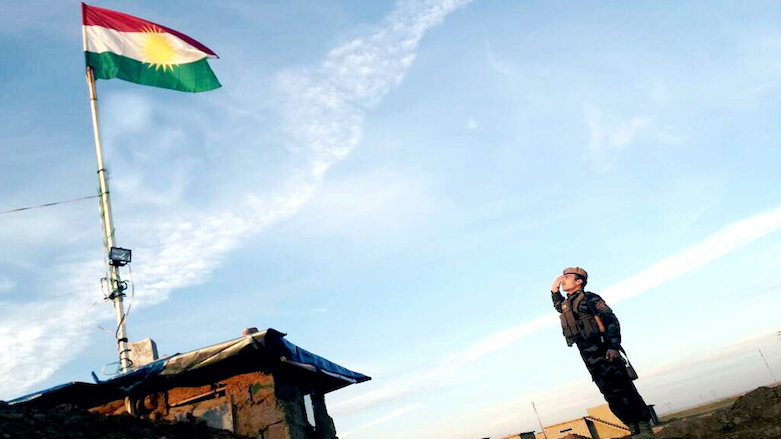What will Kurds gain by postponing independence referendum?

LONDON, United Kingdom (Kurdistan 24) – With the Kurdistan Region’s historic independence referendum just over a month away, Iraqi and United States officials continue to press for a postponement. However, what will the Kurds truly gain from any postponement, and do guarantees from Baghdad or Washington hold any water?
As a Kurdish delegation traveled to Baghdad for the first round of negotiations, the only discussions should be agreeing on a mechanism for the peaceful secession of Kurdistan and outlying the future relationship between the states of Kurdistan and Iraq.
Recent comments from Mala Bakhtiar, the executive secretary of the Patriotic Union of Kurdistan (PUK) Politburo, seemingly opening the door to a postponement of the referendum for concessions from Baghdad, would mark a disastrous step.
With Iraq offering promises and the US prepared to guarantee implementation of common accords if Kurds agree to compromise, it feels very much like the era of the Transitional Administrative Law and the writing of the Iraqi Constitution.
Over a decade after these accords, what is the status of Article 140 of the Iraqi Constitution, and other articles, Washington was supposed to assure?
More importantly, what practical steps suggest US or Iraqi promises would be any different now?
Although Bakhtiar stated, “We don’t accept to postpone the referendum with nothing in return and without fixing another time to hold it,” the financial and political assurances implied would be to the detriment of Kurdish people.
The need for any promise to implement or adhere to articles of the constitution such as share of national budget or dealing with disputed territories, tells its own story.
Why are assurances or promises even required for a government to abide by the legal and democratic blueprint of the country, agreed by multiple political parties and voted for by millions?
Kurdistan receiving the billions of dollars it is owed may seem an incentive, but it is no good to clear debts only to see a set of new debts quickly rack up.
Even if Kurdistan did seek economic or political concessions, it would have a much stronger hand if they go through with the referendum and then negotiate.
US Secretary of State Rex Tillerson, US commander of the Central Command General Joseph Votel and, in recent days, US Defense Secretary James Mattis have all repeated calls for Kurdistan to postpone the referendum.
Ironically, even the US policy toward the referendum and Kurdish right to self-determination has been inconsistent and confusing.
Iranian and Turkish officials have echoed the US and Iraqi calls for a postponement of the vote.
Before embarking on a visit to meet with Kurdish leadership in Erbil, Turkish Foreign Minister Mevlut Cavusoglu stated, “Our expectation from Erbil is clear, that is the cancellation of the referendum, as the interests and future of the Kurds lie in a united Iraq.”
If Kurds postpone the referendum this time, then when is a “right time” to hold it? Moreover, does such a postponement further the agendas of Iraq, the US, and regional powers, or does it also benefit the people of Kurdistan?
In reality, there will never be a time where Turkey or Iran willingly accept Kurdish statehood.
Either way, they have little choice but to accept Kurdish independence. Any long-term measure would harm their economic, security, and political interests as much as the Kurds.
Rejecting calls to postpone the referendum, Kurdistan Region President Masoud Barzani asked, “What guarantees exist for Kurdistan if they postpone the referendum and what is the alternative for the future of Kurdistan?”
President Barzani was quick to downplay the chances of postponement in return for economic or political concessions due to a lack of trust, stating, “After four months or so, [Baghdad] will reverse the situation to what it was.”
He added, “The Kurdistan Referendum Delegation in Baghdad is not renegotiating outstanding issues, like our partnership with Iraq or budget shares. They are negotiating a post-referendum accord.”
President Barzani remains determined there is lack of a “better alternative and better guarantees” to consider any postponement of the referendum.
It is unclear if the US, the European Union, the Security Council, or the United Nations could give an official guarantee to the people of Kurdistan regarding statehood that may sway Kurdish sentiment.
In the absence of such guarantees, Kurdistan cannot sign-up to more accords with Iraq that are effectively meaningless.
Although President Barzani’s stance was reassuring, it is vital that main Kurdish political parties stick to the same language and stance in dealing with Baghdad.
Political parties in Kurdistan must act with a united and non-partisan voice.
Unfortunately, with the referendum weeks away and the parliament still inactive, it appears some sides still view the vote as a political agenda rather than the implementation of a true national right.
The Kurds have waited over a century to correct the historic wrongs imposed upon them by various sides. It would be unfortunate if Kurds were to blame now for throwing away this unique historic juncture.
Editing by Karzan Sulaivany
